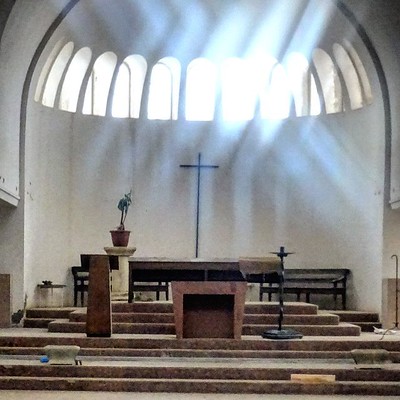In early June 2021, news broke that the Algerian government arbitrarily shut down three more churches in a single day, one of which being the renowned Oratoire Church in Oran, with the other two located in El-Ayaid and Ain-Turk. Interestingly, the decision to arbitrarily close these three churches had been made back in 2020; however, until this point they were permitted to operate relatively freely.
Such is par for the course in Algeria since late 2017, when the government embarked on a blatant campaign to shut down 13 Protestant churches on the grounds that they were allegedly operating illegally, by failing to meet both permit and safety requisites. The cases against these churches, however, fall apart when one considers that the churches had applied for permits multiple times only to be repeatedly ignored by the National Commission for Non-Muslim Religious Groups, which has to this day never issued a permit. Moreover, in their best efforts to comply with the safety measures demanded of them, the churches had undertaken numerous renovation efforts, including adding extra fire extinguishers and exits.
But for all the work that these churches put into their struggle for legal operation status, they are never rewarded for their efforts. The 13 churches closed throughout 2017 and 2019 remained closed to this day – for no acceptable reason other than that the government simply does not want them to exist. On the contrary, after all of the nation’s mosques and churches were temporarily closed to counter the spread of the novel coronavirus, only mosques were permitted to reopen; in the singular province of Tizi Ouzou alone, more than 180 mosques were reopened to the public after meeting health and safety standards, while the region’s 25 Protestant churches were repeatedly prohibited from resuming activities.
The fact that the Algerian government is discriminatory in its management of the houses of worship within its jurisdiction is indisputable. Concurrently, we are seeing a similar prejudicial stance in the government’s treatment of church leaders. A week following the swift closure of Oratoire Church in Oran, Pastor Rachid Seighir was charged with “shaking the faith” of Muslims and received a suspended one-year sentence simply for selling Christian texts at his church’s bookstore.
This is not Pastor Seighir’s first brush with the law; he was arrested under identical charges thirteen years ago in 2008, for which he was acquitted on appeal. In 2017, at the exact time when the Algerian government started its offensive against Protestant churches, the governor of Oran ordered the church bookstore to be closed, though a year later a court reversed the governor’s order on the grounds that it was illegitimate. So, for a while, Pastor Seighir was allowed to keep his church bookstore open; but now, three years later, both his bookstore and his church have fallen to the government’s intolerance.
In December 2020, three United Nations Special Rapporteurs – Special Rapporteur on Freedom of Religion or Belief Ahmed Shaheed, Special Rapporteur on Freedom of Peaceful Assembly and Association Clément Nyaletsossi Voule, Special Rapporteur on Minority Issues Fernand de Varennes – sent a letter to the Algerian government asking for clarification regarding the arbitrary closure of 13 churches and the threat of closure towards 49 other churches. In response to the letter, the Algerian government published a statement making multiple claims such as that religious freedom is valued and protected in Algeria, and that there exists no discrimination in the government’s treatment of houses of worship.
Jubilee Campaign has published a comprehensive rejoinder debunking the Algerian government’s claims, which you can access by clicking the button below:
Cover image by PhR610 on Flickr (CC BY 2.0)

